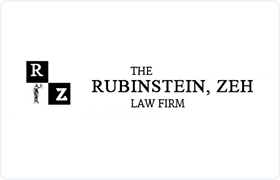 Merrick Wills & Probate Lawyers, New York
Merrick Wills & Probate Lawyers, New York
Sponsored Law Firm
-
 x
x

Click For More Info:
-
The Law Firm of Rubinstein, Zeh and Associates
445 Broadhollow Rd. Suite CL-10 Melville, NY 11747» view mapEstate Law Full Service Law Firm
The Law Firm of Rubinstein, Zeh and Associates has built its practice primarily on word-of-mouth among our clients and the trusted referrals from our colleagues.
800-960-1529
Includes: Estate Administration, Living Wills, Wills
Lawyers
<
11-12 of 12 matches



 Christine Rubinstein Melville, NY
Christine Rubinstein Melville, NY AboutThe Law Firm of Rubinstein, Zeh and Associates
AboutThe Law Firm of Rubinstein, Zeh and Associates Practice AreasExpertise
Practice AreasExpertise